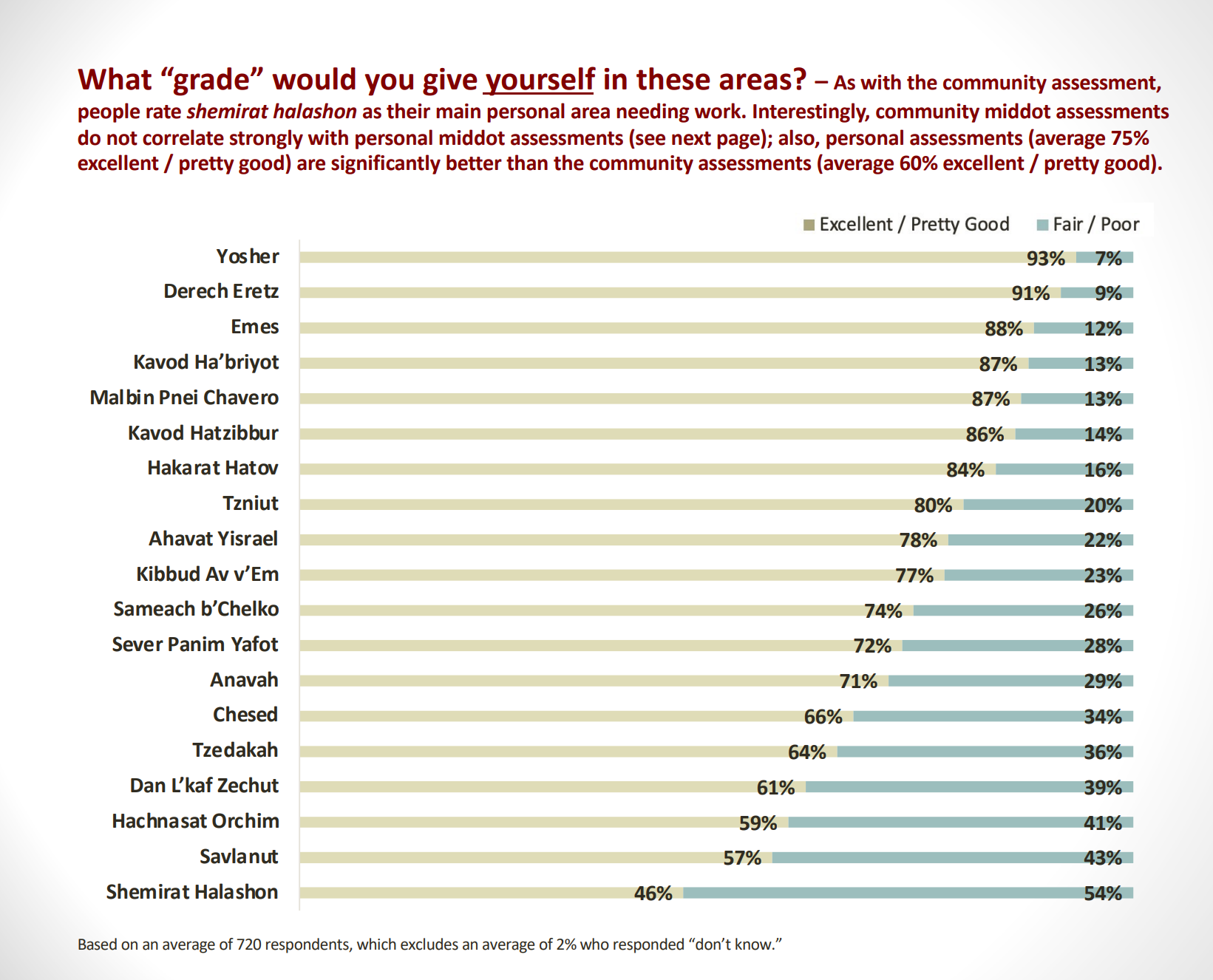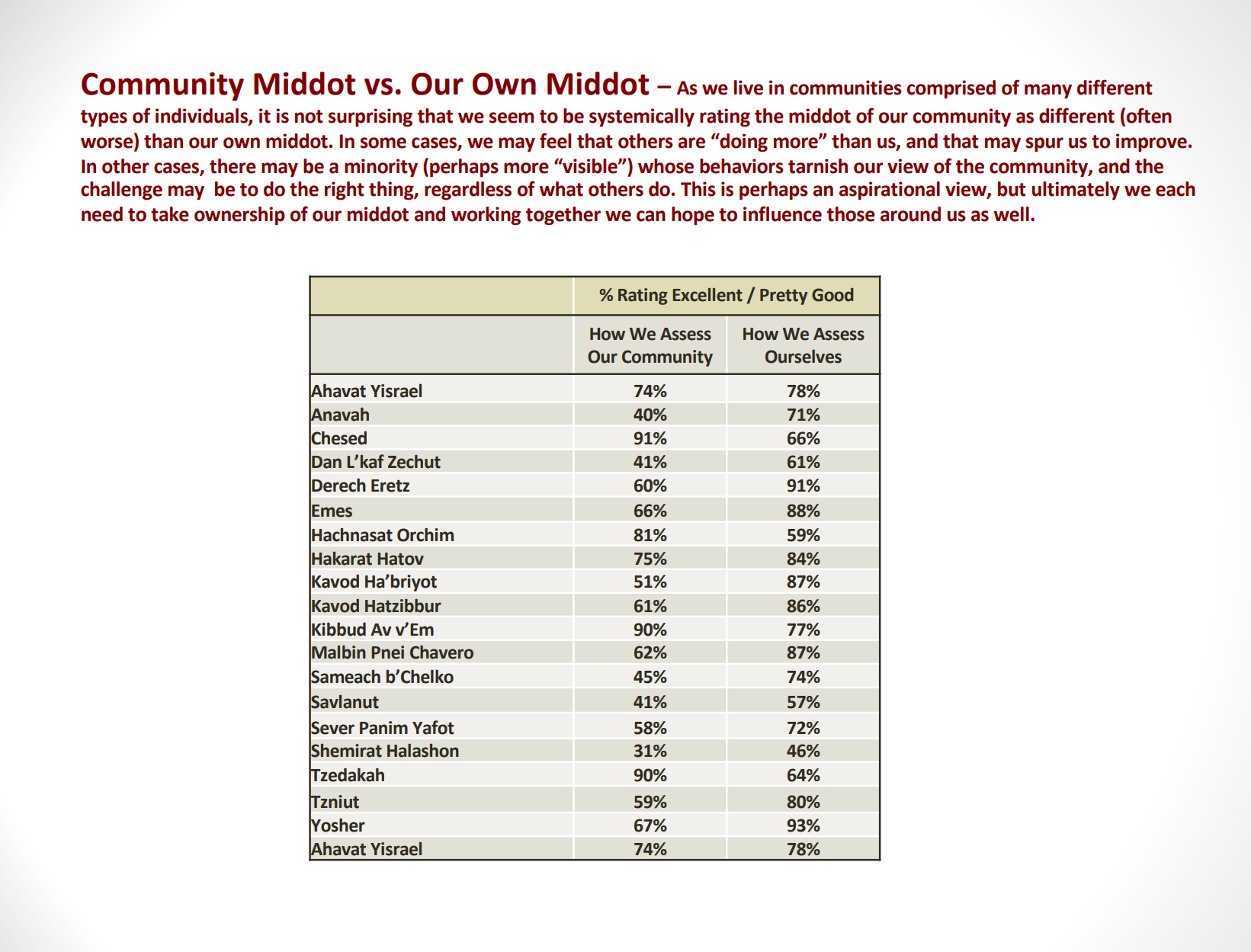The findings from a survey by Nishma Research released on Sunday has shed light on the middos that Orthodox Jewish communities across the US prioritize and where they feel there is room for improvement. The study, which focused on bein adam l’chavero, was intentionally released ahead of the Yamim Noraim.
The survey, which is not a demographic profile but rather a resource for community introspection, asked respondents to assess both their personal conduct and their community’s performance in cultivating middos. The virtues explored included anavah, chesed, tzedakah, and shemiras halashon, among others.
Key Findings:
- Respondents identified chesed, tzedakah, and kibbud av v’em as the strongest areas in their communities. The findings suggest that Orthodox communities provide robust support systems for those in need, with many citing the presence of charitable organizations like G’machs and Tomchei Shabbos.
- The survey revealed significant areas for growth, particularly in controlling harmful speech. A staggering 69% rated their community’s performance in shemiras halashon as “fair” or “poor.” Other areas needing attention include anavah, dan l’kaf zechus, savlanus, and sameach b’chelko. One respondent lamented, “Lashon hara is rampant, and there is a lot of stereotyping based on what shul or school people attend.”
- While about 60% of respondents agreed that Jewish schools and rabbanim are doing a good job emphasizing middos, only 10% fully agreed, with most believing there is room for improvement. Many called for schools and rabbanim to place greater emphasis on teaching good character traits. “It would be great if schools would put more of an emphasis on really teaching middos and making meaningful incentives for kids,” one respondent suggested.
- When reflecting on their own behavior, many respondents acknowledged that controlling gossip is an area they struggle with personally. Several expressed a desire to be more proactive in stopping harmful conversations. “I want to work on speaking up when my friends speak lashon hara,” one person shared. Others focused on improving empathy and patience, particularly within their families, and developing strategies for better self-awareness and kindness.
- Respondents also highlighted the need to stop being overly judgmental of others, with an emphasis on understanding different perspectives and being more compassionate. One respondent remarked, “I want to work on being less judgmental and more dan l’kaf zechus. Sometimes, I make assumptions without knowing what’s really going on in the other person’s life.”

















One Response
Interesting. I would’ve assumed people thought tzinius is lacking more nowadays.
though I guess the contrast with the world has grown much starker…